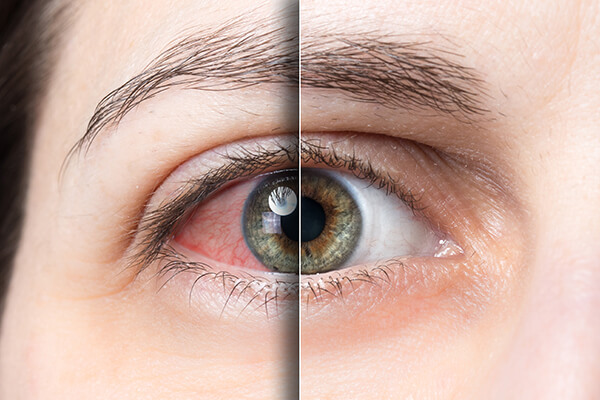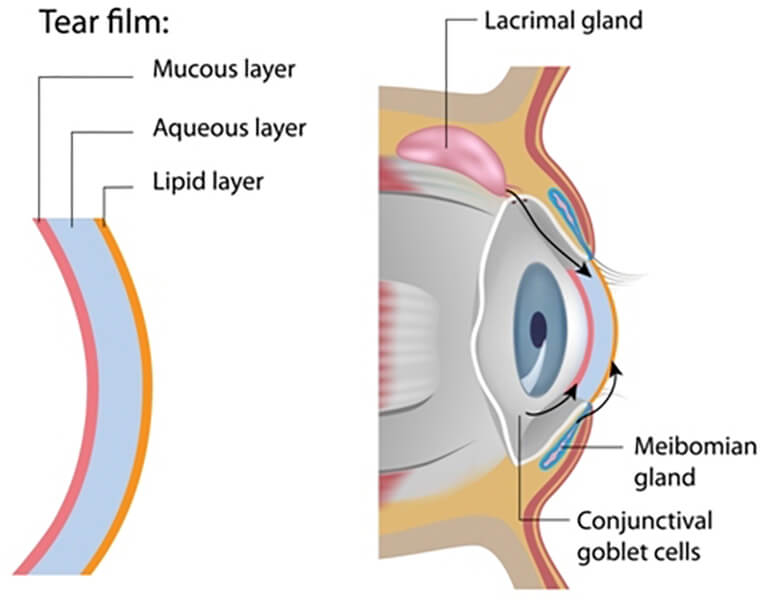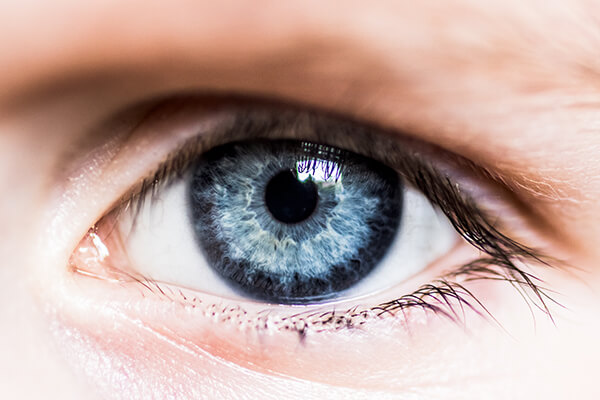

Dry eye syndrome can cause eye irritation, redness, and blurry vision, among many other unwanted symptoms.
At Society Hill Ophthalmic Associates in Philadelphia, Pennsylvania, our eye doctors specialize in diagnosing and treating dry eye. Once our specialists are able to determine the root cause of your symptoms, they can help develop a treatment plan to improve them.

Dry eye syndrome is an eye condition where the front surface of your eye, known as the cornea, does not have adequate lubrication. This eye condition can root from an issue where your eyes are not creating enough tears, or the tears they produce are of insufficient quality.
The cornea is the round transparent dome at the front of your eye. It is responsible for many essential functions, including altering the light that enters the eye and allowing you to see clearly.
In order for it to complete its function, it needs to be adequately lubricated by the tear film.
A well-balanced tear film allows for a healthy and comfortable cornea. For your tear-film to be well-balanced, it must have a sufficient amount of each layer.

The lipid layer is the layer farthest from your cornea’s surface. This layer is oily and is responsible for keeping the tear surface smooth and ensuring that the tears do not evaporate too quickly.
The aqueous layer is the middle layer of the tear film. This layer is watery, washes away any debris, and ensures that the eye stays infection-free.
The mucin layer is the layer that is closest to the cornea. This layer helps spread the aqueous layer over the eye’s surface and ensures that the tears adhere to the eye for proper lubrication.
Dry eye syndrome can cause different symptoms to appear in each person. However, some of the most common symptoms of dry eye are:
The first step to treating your symptoms is determining their root cause. Your eye doctor will ask you about any symptoms you are experiencing.
Next, they will do a thorough examination of your eyes and inspect the surface of your eyes under a microscope. The examination will likely include additional testing to help determine what is causing your dry eye symptoms, like TearLab osmolarity testing.
TearLab osmolarity testing aids your eye doctor in diagnosing dry eye. Your tear osmolarity levels are excellent markers of eye surface health.
Once your eye doctor is able to determine what is causing your dry eye, they will be able to develop a treatment plan to improve your symptoms.

There are many methods available for dry eye treatment. Some forms of treatment may work better for some people than others.
In many cases, the first step in treating dry eyes is increasing the use of artificial lubricating drops. In addition, they may recommend that you begin taking prescription eye drops to reduce inflammation in your eyes.
At Society Hill Ophthalmic Associates, our dry eye specialists often prescribe Xiidra and Restasis to help treat the symptoms of dry eye. These eye drops can improve inflammation in your eyes, which can help increase your eye’s natural ability to produce tears.
BlephEx is an in-office procedure that can help reduce the symptoms of dry eye and blepharitis. During this procedure, your eye doctor will remove debris from your lash line and exfoliate your eyelid.
This debris can inhibit the release of natural oil from the meibomian glands on the eyelids. The BlephEx procedure can improve dry eye symptoms by promoting these glands to produce the oil necessary for a healthy cornea.